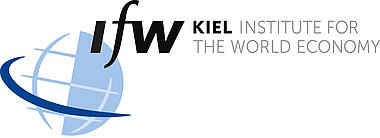Report Launch
Fit for war by 2030? European rearmament efforts vis-a-vis Russia: rising but lagging in numbers and technologies
The report updates and expands the data-driven work of an initial study from September 2024, which concluded that Europe would only be fit for war in several decades. It shows that the situation today is even more concerning if Europe aims to be fit for war by 2030.
First, Russia continues to outproduce four European countries across multiple weapon systems. The report demonstrates that production must increase by a factor of around five to tilt the balance decisively in Europe’s favour. Procurement needs to accelerate and be frontloaded, as delivery delays of three years or more persist.
Second, transatlantic tensions are weakening the strength of the U.S. security guarantee. Europe depends heavily on the U.S. not only for readily deployable troops but also for strategic enablers. While overall U.S. weapon imports are limited, reliance on American systems in critical modern capabilities remains a concern.
Third, military strategy and technology are evolving rapidly. Military planners must modernise weapons and strategy while simultaneously scaling existing and effective systems—a major challenge for often slow and bureaucratic procurement structures. Investment in European technology is essential for modernisation. European weapons tend to be expensive due to low production volumes; a focus on cost-effectiveness is vital to ensure the EU’s planned €800 billion defence spending is sufficient and fiscally sustainable.
The report was written by Alexandr Burilkov, Katelyn Bushnell, Juan Mejino-López, Thomas Morgan, and Guntram B. Wolff, and is jointly published by Bruegel and the Kiel Institute for the World Economy.
Agenda
- Opening
Moritz Schularick, President of the Kiel Institute for the World Economy
- Presentation
Alexandr Burilkov, Assistant Director for Research, GLOBSEC GeoTech Center, and Lecturer in International Relations, Leuphana University of Lüneburg
Guntram Wolff, Professor of Economics at Solvay Brussels School, Université Libre de Bruxelles, and Senior Fellow at Bruegel and the Kiel Institute
- Discussion
Nathalie Tocci, Director of the Istituto Affari Internazionali and Adjunct Professor at the School of Transnational Governance, European University Institute
- Followed by an open Q&A and discussion with all participants.
Contact
Elisabeth Schröder
berlin@ifw-kiel.de
Jointly published by the Kiel Institute for the World Economy and Bruegel

